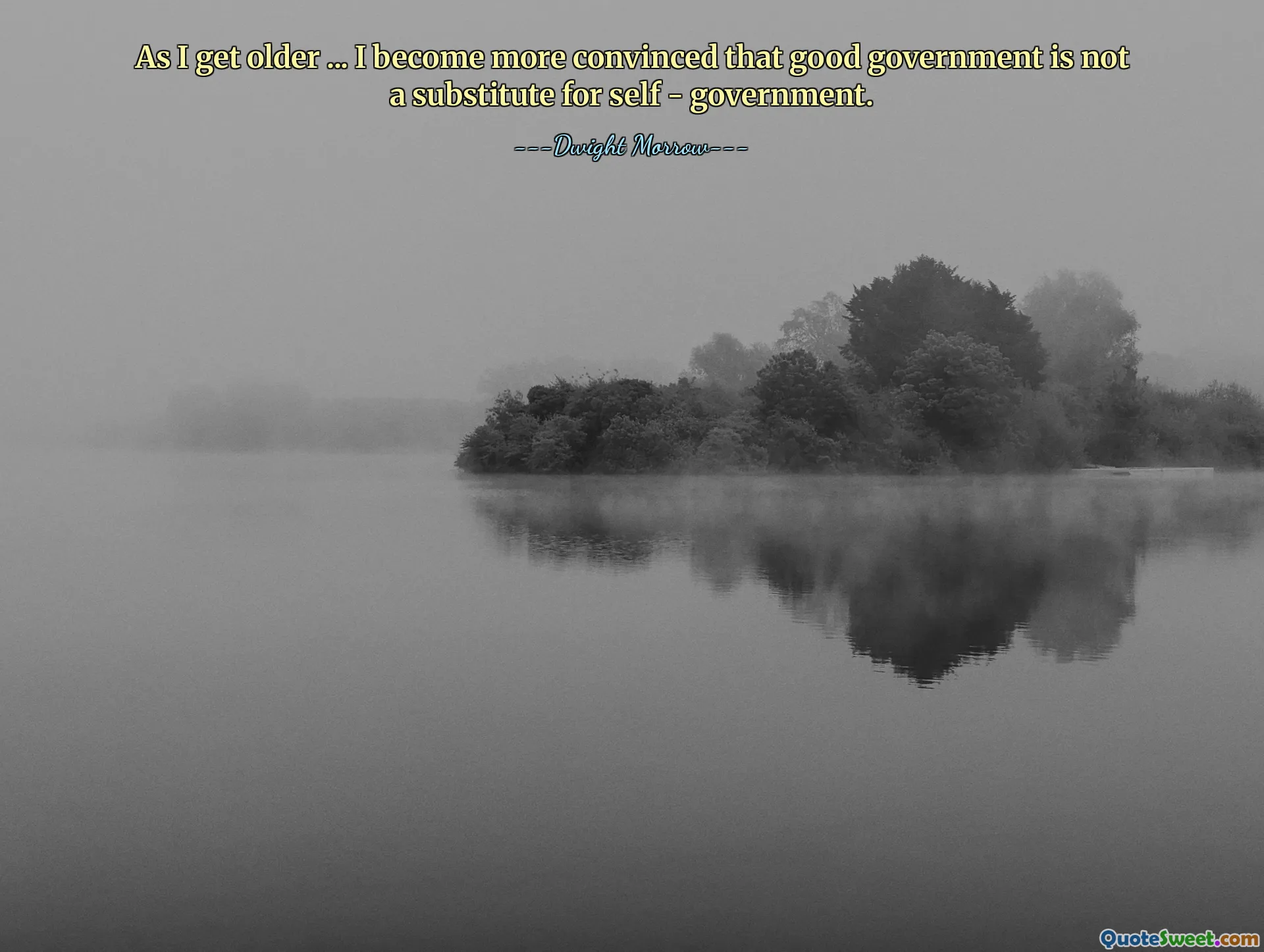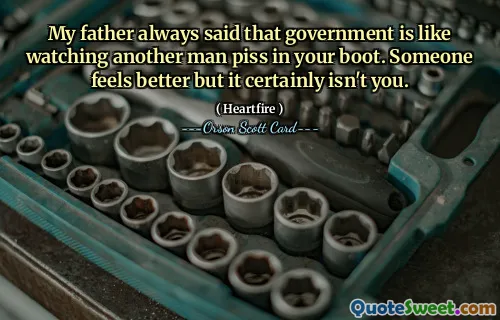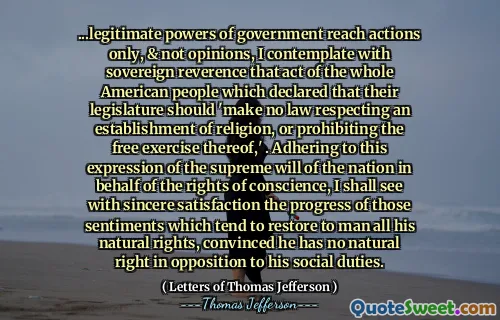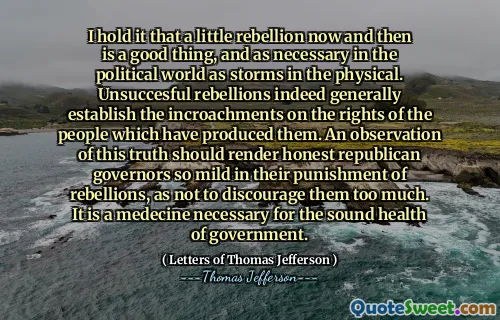
As I get older ... I become more convinced that good government is not a substitute for self - government.
This quote underscores the enduring importance of individual responsibility and personal agency within a democratic society. As we grow older, our understanding of the intricacies of governance and social systems deepens, revealing that the foundation of a thriving community relies not solely on the effectiveness of governmental institutions but equally on the character, integrity, and self-discipline of its citizens. It emphasizes that while government can provide structure, law, and order, it cannot replace the internal governance that individuals must hold over their own actions and choices. The concept encourages a reflection on personal accountability—highlighting that social progress depends significantly on each person's commitment to ethical behavior, civic engagement, and self-control. When individuals take ownership of their responsibilities, they contribute more effectively to societal well-being, reinforcing the fabric of democracy. This perspective also prompts us to consider the limits of governmental authority; no matter how well-designed, policies and laws cannot substitute for the moral compass that guides individual behavior. As years progress, perhaps we recognize more clearly that sustainable and meaningful change begins within each person, fostering a culture where self-regulation complements formal governance. This understanding is vital because it reminds us that the health of a society ultimately depends on its people’s ability to exercise virtue and responsibility on a personal level, thus creating a resilient and self-sustaining community.











